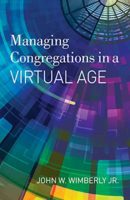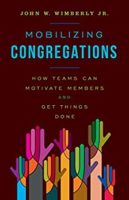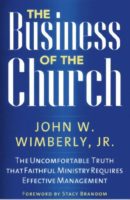
“Will they never retire?” is a question I hear a lot from younger clergy these days who wonder when my generation (the Baby Boomers) will retire. The Center for Retirement Research reports that 40% of men are still working at age 65 today, double the rate of 20% from a decade ago. Gallup recently released data showing that the average retirement age is now five years older than in the early 1990s. Similar trends are happening with women.
The reason younger clergy are wondering, even complaining, about the retirement plans (or lack thereof) of their older colleagues is obvious: they want their jobs. Pocket watch As long as the Baby Boomers remain in their positions, the pipeline to better or different positions is closed.
All of this raises the question, “When is the appropriate time to retire?” As someone who retired after forty years from congregational ministry, I have some thoughts. First, to those who say, “You didn’t retire; you became a consultant,” I would simply respond that I am a Washingtonian. In Washington, D.C., becoming a consultant, upon retirement, is a time-honored tradition!
Seriously, I retired from congregational ministry because it was time for me to move on. It was also time for the congregation to enjoy the things a younger leader can provide that I no longer could. Over the last five years of ministry, in particular, the list of things I really didn’t want to do grew ever-longer. I did them. But I didn’t enjoy doing them. Second-career clergy may have a different take on retiring from ministry. But for those of us who entered ministry in our twenties, forty years is a long time to deal with the stresses and routines of being a pastor or rabbi.
Some clergy need to continue to work for financial reasons. Some continue to work because they have a particular project they want to see finished or a specific goal achieved. But some clergy continue to work because they can’t envision life not working. They work because they don’t know what is next.
Working because we can’t think of anything better to do is not a positive, pro-active approach to life. Indeed, to me, it sounds like a form of imprisonment. It also reveals that our work and our identity as a person have become fused in an unhealthy way. We can’t imagine ourselves “being” without being a clergyperson. Finally, working just to work reflects a profound lack of trust that God will find a purpose for us in retirement.
If we are working because we can’t envision life beyond ministry, I suggest finding a counselor immediately. In that situation, we need help thinking through our choices for the next phase of life. We need to jump-start our imaginations. Ironically, the options for us in retirement are actually more plentiful than our options while employed full time.
So what is retirement like? I find it to be pretty wonderful. I can spend more time with my wife, kids and grandkids, be a consultant (on my schedule), write, throw pots on the wheel, and travel. I was actually able to attend a college homecoming game for the first time in almost fifty years. After having my schedule dictated to me by the demands of the congregations I served, it is glorious to decide what I will do and when I will do it.
However, retirement is a huge adjustment. First, if you are married, you are suddenly spending more time with your spouse than you have ever spent in your life. For the first time in her life, every time my wife turned around, I was standing there. It was pretty unnerving for her and me. However, over time, we figured out new patterns for our daily lives. We all learned new ways to manage our time when we went to college and, later, when we started ministry. We do the same as retired persons.
Second, retirement requires some humility. We are no longer on the pedestal where our congregations placed us. I know, we were supposed to climb off those pedestals. But how many of us did? As a retired person, I am just that—an older member of our society. Sometimes I am respected as an older person. Other times, I am taken for granted or even dismissed. Being retired is a slice of humble pie.
Third, there is no career track. To me, that is still a bit unnerving. I always had a vision of what is next. I really don’t anymore. I am very much an existential person these days. Is being existential bad? Not really. But it is certainly different.
It is time for the Baby Boomer clergy to start planning for retirement. We have been blessed to work in congregations during one of the most exciting times in human history. We started work pounding out sermons on a rickety typewriter and today we distribute our sermons as podcasts. We began ministry having to go to a library to find a particular quote or piece of information and conclude our ministry with the luxury of a Google search. Early on, we watched members die of things that today are routinely resolved with medications or surgery. We have had the sublime opportunity to nurture our congregations as we morphed from a nation with segregation to the election of an African American president; from gay-bashing to LGBT rights; from limited options for women to vastly increased opportunities today. Blessed we have been. Blessed we are.
One of my favorite pieces of Scripture is the third chapter in Ecclesiastes where the author talks about the various seasons in life: A time to love, and a time to hate; a time for war, and a time for peace. To that list I would add: A time to work, and a time to retire.
John Wimberly is an experienced pastor and consultant. As a consultant, he has worked with congregations and judicatories on strategic planning, staff designs for the 21st century, and congregational growth as well as financial and administrative management. He has MBA, MDiv, and PhD (theology) degrees. His books focus on effective management and leadership. John believes congregations can have a bright future!



